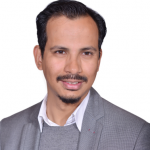Course Information
- 2019-20
- CVJR1022
- 5-Year B.A., LL.B. (Hons.), LL.M.
- V
- Mar 2020
- Seminar Course
This is an elective course in constitutional theory. It is a standalone course. Prior exposure to constitutional law, constitutional theory and legal and moral philosophy may be helpful, but is not necessary for taking up this course. The course involves both doctrinal and theoretical reading materials.
This course examines, through the example of dignity, how constitutional courts employ abstract moral and political values in judicial reasoning. Dignity, like other constitutional values, is admittedly indeterminate. It is however ubiquitous in the reasoning of constitutional courts, especially in cases exhibiting deep moral and political disagreements that are potentially divisive for societies. Dignity is often pronounced to be the source of all other constitutional rights, and indeed all human rights. Scholarly opinion however diverges on whether abstract values should be employed by courts at all, some even suggesting that courts employ such values as smokescreens to cover their own moral and political inclinations?
The course examines these issues in four parts. Part I examines the expectations from constitutional adjudication in the literature on the role of constitutional courts. Part II examines the Supreme Court of India’s jurisprudence on dignity to highlight the controversies over its application. Part III is a comparative study of how the value has been employed by other courts in select jurisdictions, particularly in South Africa and Germany. Part IV focuses on literature in legal, moral, and political philosophy on the content of dignity; and employs that as a framework to evaluate the reasoning of courts.
Cases that employ dignity discussed in part II and III include those on the right to privacy, AADHAR, sexual orientation, freedom of expression, torture, dwarf-throwing, controversial personal laws and issues of citizenship.


